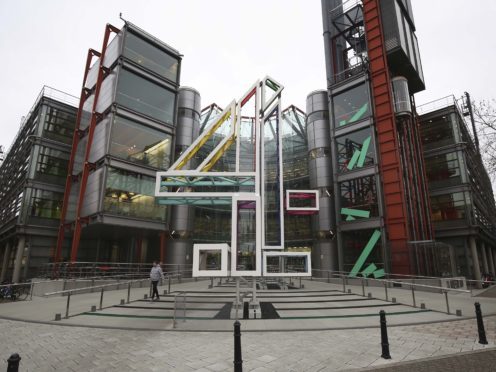Channel 4 will join forces with the BBC next week to address Parliament over prominence rules and the steps needed to update them, the broadcaster has said.
Channel 4’s chief executive Alex Mahon and BBC director-general Lord Hall will lobby for an update to the existing rules regarding content from public broadcasters on user interfaces across streaming services, and TV guide interfaces on smart TVs.
Speaking as Channel 4 unveiled its annual report at its headquarters, Mahon also announced a new partnership with Vice, a digital media and broadcasting company, which will make available more than 900 hours of long-form content on the broadcaster’s on-demand service, All 4.
Calling for a “radical change” in prominence rules, Mahon said: “Given the growth of viewing that is now happening through smart TVs and streaming sticks, I think the policy makers need to really consider the legislation, need to consider how British voices and public service content and those stories can continue to be found on those devices and to make sure they are are heard wherever they occur.”
Channel 4 and @VICE strike major partnership bringing 900+ hours of premium VICE content to @All4 https://t.co/ktpIsVDaEX pic.twitter.com/HsjluaittZ
— Channel 4 Press (@C4Press) June 5, 2018
The Vice partnership follows Mahon’s strategy reveal in May, which addressed the broadcaster’s focus on three key themes including increasing their impact on younger audiences, accelerating digital capabilities and building a “creative and inclusive” culture.
Mahon described the Vice partnership as a “phenomenally exciting and innovative partnership”, which the broadcaster hopes will “create a compelling new hub for young viewers on All 4 and extend the reach of Vice’s content on a free platform”.
She also urged the Government to carry out a “full, fact-based consultation plan” in relation to a potential ban on advertisements pre-watershed for food and drinks that are high in salt, fat or sugar (HFSS), a cause being championed by chef Jamie Oliver to help tackle childhood obesity.
She said: “We are hugely supportive of the Government objective of reducing childhood obesity, but we are concerned that we might be sleepwalking in a course of action that is not properly thought through.”
The annual report shows corporation revenue for 2017 is £960 million, down from the 2016 figure of £995 million, with advertising revenue also showing a decline for 2017, with a figure of £897 million.
This figure is down from 2016’s £938 million, which the broadcaster attributed to a drop in the television advert market decline following the news of Brexit.
Last year the broadcaster spent £675 million on content, of which a record amount of £510 million was spent on original content commissions.
The figure included commissions of shows such as The Great British Bake Off, Ackley Bridge, Peter Kosminsky’s The State and new formats such as Lego Masters and The End of the F***ing World.
The broadcaster said it has also made available a revolving credit facility of £75 million in addition to its cash and assets of £446 million to project against any shocks to the advertising market resulting from Brexit.
Last week the broadcaster announced the cities and regions that have been shortlisted to host its new national headquarters and two creative hubs when it moves 300 staff out of London to three new bases next year.
The initiative, billed as the biggest change to its structure in its 35-year history, will also see the broadcaster commit to increase its content spend in the nations and regions.
As such, Channel 4 has said it will increase its current content spend quote of 35% to a voluntary target of 50% by 2023, which will result in a boost of more than £250 million in commissioning spend in the nations and regions.
Mahon said: “I think it really will have a transformative effect on regional representation on screen and across the country.”
